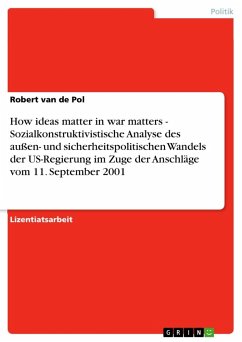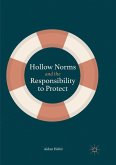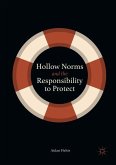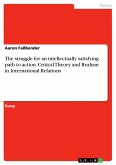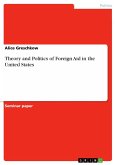Seminar paper from the year 2015 in the subject Politics - International Politics - General and Theories, grade: 1,0, Johannes Gutenberg University Mainz, language: English, abstract: This paper will look at the Iraq War, the most important operation in the Global War on Terror, under the "magnifying glass" of constructivism: the invasion of Iraq was a protracted armed conflict that escaped international standards of war-making. Why should the US risk regional stability through a belated intervention? Why should they incur the enormous humanitarian, economic, and military costs connected with a preventive war that lacked legitimacy under international law and, thus, was very likely to damage transatlantic relations? By scrutinising the Bush Administration's rationale for war and examining a variety of possible objectives that are based on constructivist concepts, I will try to make sense of this war which remained unexplainable to many other international relations (IR) theories.In a first step, I will give a brief introduction to Constructivist theory focusing on the three principal aspects of state identities and interests, international structure, and conditions of cooperation and conflict. Secondly, I will address the issue of America's threat perceptions and enemy images in order to explain how inherited values and attitudes shaped the Bush Administration's assessment of the incident. Following a description of the US rationale for war, I will focus on the theme of international normative frameworks so as to explain why they imposed their decision against the serious concerns of the UN community of states. In this context, an important role will be played by the substantial unilateral freedom of action gained by their hegemonic position in the international system. Finally, I will return to the point of US identity in order to specify that the invasion of Iraq might have made little sense from a rational point of view because it harmed European-American relations in the long term and aggravated international tensions, but that it nevertheless conformed to the imperialist ambitions of US exceptionalism and their historically defined claim to leadership.
Hinweis: Dieser Artikel kann nur an eine deutsche Lieferadresse ausgeliefert werden.
Hinweis: Dieser Artikel kann nur an eine deutsche Lieferadresse ausgeliefert werden.


